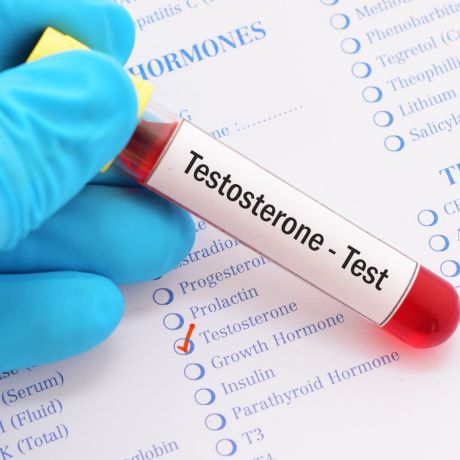Muscle Insider
New member
Low testosterone levels in men are a significant problem in our society. The causes are many; the natural effects of aging, medical conditions like diabetes and hypogonadism (which can tank your sexual health), medication effects, and lifestyle factors, to name a few. If you're suffering from low testosterone levels, you're probably interested in checking out the benefits of testosterone replacement therapy, which promises to restore testosterone levels to their normal range. The problem, of course, is how to pay for it.
?Is TRT Covered By Insurance?
Being able to claim your testosterone replacement therapy on your insurance benefits would make a big difference for many people. So, does insurance cover testosterone therapy treatment costs? The answer is a definite maybe, depending on whether or not you can satisfy your insurer's proof threshold that you have a genuine need.

What Insurance Companies Look For
An insurance company will evaluate claims based on a set of criteria to establish whether testosterone replacement therapy treatments are appropriate. There are several general elements that insurers take into account when reviewing TRT claims, even if the precise standards may change between insurance companies and policies. Among the crucial elements are:
1. Blood Tests
When evaluating testosterone replacement therapy insurance coverage, insurance companies frequently demand particular blood testosterone tests. These blood tests assist in determining a person's testosterone levels and confirm that TRT is medically required. There are basic testosterone tests that are frequently requested, even if the precise requirements may differ between insurance companies and policies. Key blood tests for TRT insurance claims include the following:
Total testosterone: Total testosterone tests determine the total amount of testosterone in the blood. Most insurance companies deem a 300 ng/dl threshold as the cut-off point for low testosterone.
Free testosterone: Testosterone in the bloodstream that is not bound to proteins is referred to as free testosterone. This is the most biologically available form of testosterone in the body. Your insurance company may specifically require readings of free testosterone levels.
Sex Hormone Binding Globulin (SHBG): This is a protein that attaches to testosterone, regulating the ability to secrete the hormone. An SHBG test gives a good indication of a person's ability to produce testosterone naturally.
Complete Blood Count (CBC): This test counts all of the red, white, and platelet blood cells, along with all of the other constituent parts of blood. This is done to determine the side effects that may occur if the subject begins TRT treatment.
Prostate Specific Antigen (PSA): PSA is a protein manufactured by the prostate gland. An insurance company may require assessing the prostate's health in relation to TRT. This may be a concern because increased PSA levels resulting from TRT have been linked to prostate diseases, including prostate cancer and benign prostatic hyperplasia (BPH).
Lipid Profile: This test measures the total cholesterol, LDL (bad) cholesterol, HDL (good) cholesterol, and triglyceride levels. Some insurers require this test as part of their screening process.
Liver Function: Some insurers may demand a liver function test before the subject begins TRT. Two standard liver function tests that are prescribed are Alanine transaminase (ALT) and Aspartate transaminase (AST).
Individual insurers may have their own blood testing standards and may require different tests to the above. They may also demand additional testing to establish persistently low testosterone levels and track the long-term consequences of TRT.
2. Diagnosis by a licensed healthcare professional
Most insurance companies require a person to have a formal diagnosis of low testosterone or hypogonadism from a qualified healthcare provider in order for an insurer to cover testosterone replacement therapy.
?If you want to know a great place to start, check out our article on the Best Online TRT Clinics.
Insurance companies typically have certain coverage requirements and depend on medical providers to supply the proper paperwork to back up the claim. For testosterone therapy coverage, a diagnosis must be made by an endocrinologist, urologist, or primary care physician.
If the healthcare professional concludes that the subject does, indeed, have low testosterone levels, an official diagnosis of hypogonadism will be made. The diagnosis will contain important details, including the subject's testosterone levels, symptoms, medical history, and any underlying reasons or contributing factors.
Based on the patient's diagnosis, symptoms, and general health, a healthcare practitioner will create a suitable treatment strategy, which may involve testosterone therapy. Documentation will be provided for the justification for TRT and its anticipated advantages in treating the identified illness.
With the diagnosis and proposed course of testosterone replacement therapy treatment in hand, the healthcare provider or a member of their staff will send the required paperwork to the insurer together with the TRT claim. In addition to any other necessary paperwork, this documentation may include test results, medical records, and lab reports.
Keep in mind that the insurance coverage for TRT can differ between policies and insurance companies. Studying the insurance policy or speaking with the insurer directly to learn about their unique requirements and standards for TRT coverage is best.

Summary
Insurance companies may or may not pay for testosterone replacement therapy treatments, depending on the individual's circumstances and the insurance plan in question. The level of insurance protection for testosterone therapy varies between insurance companies and policies. Even if you qualify for TRT, TRT costs can vary wildly between insurance companies.
Generally speaking, there are prerequisites like a formal diagnosis of low testosterone or hypogonadism from a qualified healthcare provider for TRT to be covered.
Insurance companies frequently demand supporting documentation, such as lab test results and medical records, to prove medical necessity before testosterone replacement therapy costs are covered. In addition, insurance companies may set certain requirements, such as minimum or maximum levels of testosterone or a history of unsuccessful treatment. People considering TRT should review their insurance policy and speak with their doctor to fully comprehend the specific coverage requirements, any exclusions or limitations, and the claim submission procedure.
Online TRT Clinic

Fountain TRT
We help men boost their testosterone up to a healthy, normal level using testosterone therapy. With our online doctor’s visits, treatment is a breeze. Start your personalized evaluation...
CHECK PRICE
http://setforset.fountaintrt.net/?utm_source=affiliate&utm_medium=blog&utm_campaign=sfors&opt=MzU=
If you're interested in other TRT resources, check out our articles on How Long TRT Takes To Work and TRT Before and After Results.
Click here to view the article.
?Is TRT Covered By Insurance?
Being able to claim your testosterone replacement therapy on your insurance benefits would make a big difference for many people. So, does insurance cover testosterone therapy treatment costs? The answer is a definite maybe, depending on whether or not you can satisfy your insurer's proof threshold that you have a genuine need.

What Insurance Companies Look For
An insurance company will evaluate claims based on a set of criteria to establish whether testosterone replacement therapy treatments are appropriate. There are several general elements that insurers take into account when reviewing TRT claims, even if the precise standards may change between insurance companies and policies. Among the crucial elements are:
1. Blood Tests
When evaluating testosterone replacement therapy insurance coverage, insurance companies frequently demand particular blood testosterone tests. These blood tests assist in determining a person's testosterone levels and confirm that TRT is medically required. There are basic testosterone tests that are frequently requested, even if the precise requirements may differ between insurance companies and policies. Key blood tests for TRT insurance claims include the following:
Total testosterone: Total testosterone tests determine the total amount of testosterone in the blood. Most insurance companies deem a 300 ng/dl threshold as the cut-off point for low testosterone.
Free testosterone: Testosterone in the bloodstream that is not bound to proteins is referred to as free testosterone. This is the most biologically available form of testosterone in the body. Your insurance company may specifically require readings of free testosterone levels.
Sex Hormone Binding Globulin (SHBG): This is a protein that attaches to testosterone, regulating the ability to secrete the hormone. An SHBG test gives a good indication of a person's ability to produce testosterone naturally.
Complete Blood Count (CBC): This test counts all of the red, white, and platelet blood cells, along with all of the other constituent parts of blood. This is done to determine the side effects that may occur if the subject begins TRT treatment.
Prostate Specific Antigen (PSA): PSA is a protein manufactured by the prostate gland. An insurance company may require assessing the prostate's health in relation to TRT. This may be a concern because increased PSA levels resulting from TRT have been linked to prostate diseases, including prostate cancer and benign prostatic hyperplasia (BPH).
Lipid Profile: This test measures the total cholesterol, LDL (bad) cholesterol, HDL (good) cholesterol, and triglyceride levels. Some insurers require this test as part of their screening process.
Liver Function: Some insurers may demand a liver function test before the subject begins TRT. Two standard liver function tests that are prescribed are Alanine transaminase (ALT) and Aspartate transaminase (AST).
Individual insurers may have their own blood testing standards and may require different tests to the above. They may also demand additional testing to establish persistently low testosterone levels and track the long-term consequences of TRT.
2. Diagnosis by a licensed healthcare professional
Most insurance companies require a person to have a formal diagnosis of low testosterone or hypogonadism from a qualified healthcare provider in order for an insurer to cover testosterone replacement therapy.
?If you want to know a great place to start, check out our article on the Best Online TRT Clinics.
Insurance companies typically have certain coverage requirements and depend on medical providers to supply the proper paperwork to back up the claim. For testosterone therapy coverage, a diagnosis must be made by an endocrinologist, urologist, or primary care physician.
If the healthcare professional concludes that the subject does, indeed, have low testosterone levels, an official diagnosis of hypogonadism will be made. The diagnosis will contain important details, including the subject's testosterone levels, symptoms, medical history, and any underlying reasons or contributing factors.
Based on the patient's diagnosis, symptoms, and general health, a healthcare practitioner will create a suitable treatment strategy, which may involve testosterone therapy. Documentation will be provided for the justification for TRT and its anticipated advantages in treating the identified illness.
With the diagnosis and proposed course of testosterone replacement therapy treatment in hand, the healthcare provider or a member of their staff will send the required paperwork to the insurer together with the TRT claim. In addition to any other necessary paperwork, this documentation may include test results, medical records, and lab reports.
Keep in mind that the insurance coverage for TRT can differ between policies and insurance companies. Studying the insurance policy or speaking with the insurer directly to learn about their unique requirements and standards for TRT coverage is best.

Summary
Insurance companies may or may not pay for testosterone replacement therapy treatments, depending on the individual's circumstances and the insurance plan in question. The level of insurance protection for testosterone therapy varies between insurance companies and policies. Even if you qualify for TRT, TRT costs can vary wildly between insurance companies.
Generally speaking, there are prerequisites like a formal diagnosis of low testosterone or hypogonadism from a qualified healthcare provider for TRT to be covered.
Insurance companies frequently demand supporting documentation, such as lab test results and medical records, to prove medical necessity before testosterone replacement therapy costs are covered. In addition, insurance companies may set certain requirements, such as minimum or maximum levels of testosterone or a history of unsuccessful treatment. People considering TRT should review their insurance policy and speak with their doctor to fully comprehend the specific coverage requirements, any exclusions or limitations, and the claim submission procedure.
Online TRT Clinic

Fountain TRT
We help men boost their testosterone up to a healthy, normal level using testosterone therapy. With our online doctor’s visits, treatment is a breeze. Start your personalized evaluation...
CHECK PRICE
http://setforset.fountaintrt.net/?utm_source=affiliate&utm_medium=blog&utm_campaign=sfors&opt=MzU=
If you're interested in other TRT resources, check out our articles on How Long TRT Takes To Work and TRT Before and After Results.
Click here to view the article.








